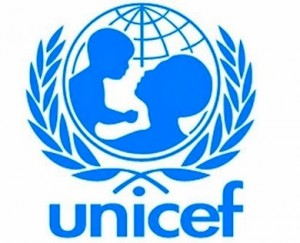UNICEF, partners fund sanitation improvement in Ghana
 Alhaji Collins Dauda, the Minister of Local Government and Rural Development, has said Ghana is challenged with the provision of adequate improved sanitation facilities to ensure a healthy environment and lives.
Alhaji Collins Dauda, the Minister of Local Government and Rural Development, has said Ghana is challenged with the provision of adequate improved sanitation facilities to ensure a healthy environment and lives.
“Currently, access to improved sanitation in the country is only 15 percent, while 58 per cent of the population share latrines and 19 per cent do open defecation,” he said.
However, he noted, sound environmental and sanitation practices were key to the health of every nation.
Alhaji Dauda, said these in a speech, read on his behalf by Alhaji Amin Abdul-Rahman, the Director of Finance and Administration of the Ministry of Local Government and Rural Development, at a ceremony to handover 11 vehicles valued at $327,600 to six regions, including the five most deprived regions namely: Volta, Central, Northern, Upper West and Upper East.
The vehicles were funded by the United Nations Children and Education Fund (UNICEF), the Canadian and the Netherlands Governments and their non-governmental partners.
They comprise nine Toyota Hilux and two Toyota Land cruiser vehicles
The vehicles would be utilised for scaling-up the on-going Ghana – UNICEF Water, Sanitation and Hygiene (WASH) Programme activities in schools and the Community Led Total Sanitation (CLTS) approach, which encourages people to own their toilet facilities and Sanitation Marketing and Technology Support programmes.
Alhaji Dauda said the Government had committed itself to overcome the challenges of improving access to sanitation through the implementation of the CLTS, the Greater Accra Metropolitan Area Sanitation and executing Water Projects in low income communities.
Other initiatives are the microfinance approach for household toilets and Ghana Sanitation Challenge Project, with complementary efforts in sanitation marketing WASH programmes in schools.
The Minister said effective monitoring had continued to be a major challenge in the implementation of the above interventions and called on the development partners to help enhance the monitoring and evaluation role of the RCC’s Departments and Agencies and key partners involved in the programmes.
He urged beneficiary institutions to give the vehicles to the intended agencies and emphasised that the vehicles were to support the attainment of critical results.
Ms Susan Namondo Ngongi, UNICEF’s Representative in Ghana, said the country could not progress in its health growth without meeting its sanitation goals.
She said the WASH Programme was aimed at reaching two million people to change their behaviour and empower them to build toilets and improve environmental sanitation.
Ms Ngongi said open defaecation rates had come down too slowly, therefore, it was important to dramatically increase these rate of improvement, otherwise it would take 500 years for Ghana to end open defaecation.
Madam Tina Guthrie, the Representative of Canada, said it was worrying that only 15 per cent of Ghanaians had access to improved water and sanitation, while the situation was five per cent the three northern regions.
She said this meant that about 22 million people did not have healthy, safe and dignified places of personal convenience and this could be collectively resolved by all stakeholders as a responsibility to save lives and health resources.
Mr Fred Smith, a Representative of the Netherlands, said the focus areas of the Ghana/Netherlands WASH-Programme were urban sanitation and the private sector.
He said the Netherlands was supporting UNICEF efforts to fulfil the sanitation goals targeted under the Sustainable Development Goals.
Despite the progress made by the Government in providing access to improved water sources, UNICEF says about 3,600 children die each year from diarrhoea, and suffer from stunting, which is linked to poor water and sanitation.
About 20 million Ghanaians do not have access to improved sanitation and five million engage in defaecation.
Source: GNA
